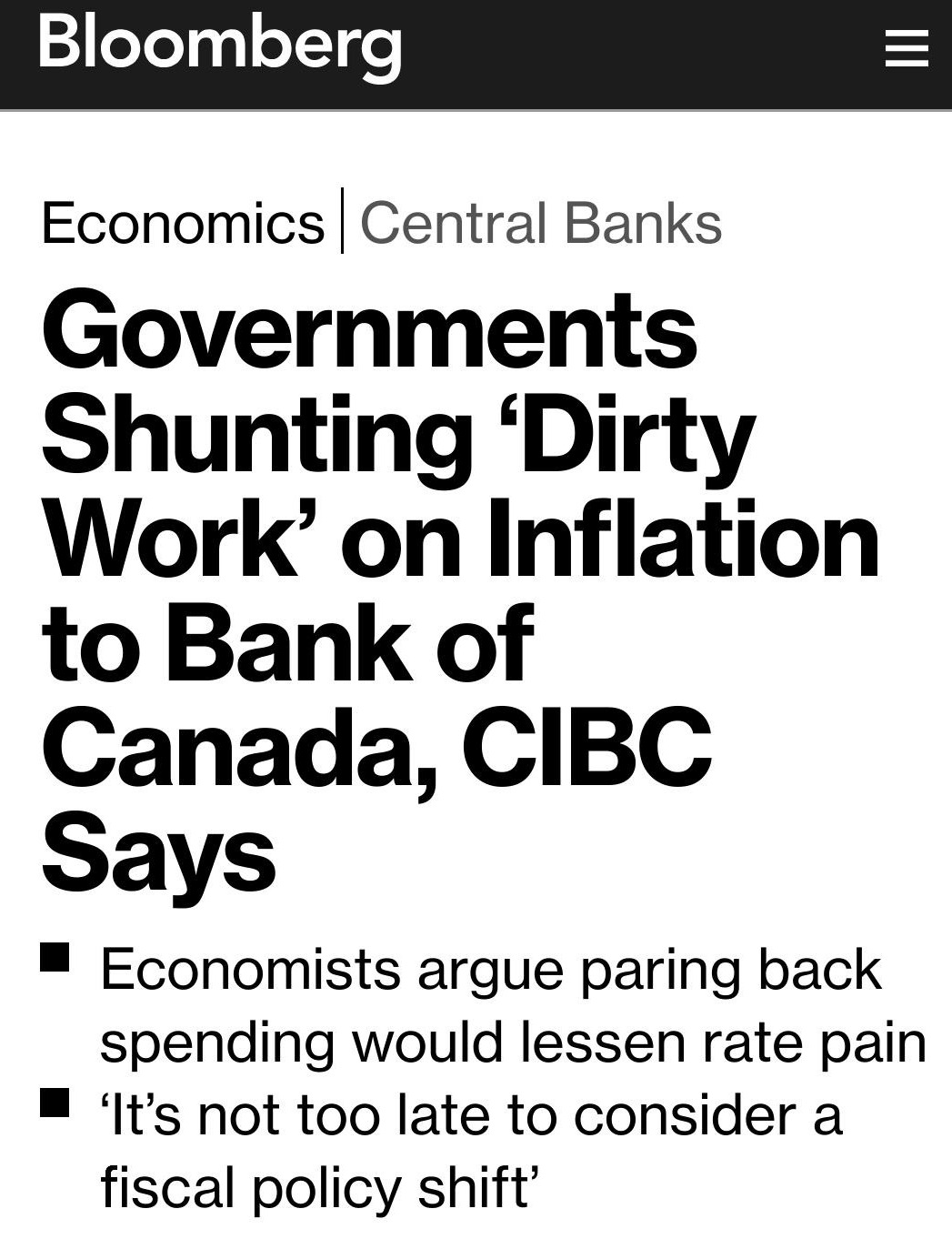June 13, 2023
Private banks are angry at the central banks
- Watch for inflation numbers this morning from the USA
- UK's labour market is tightening
- Central banks are not satisfied people are suffering enough yet.
In Canada, CIBC was the first to come out and say what they have all been thinking:

Banks are getting rather angry at the higher central bank rates because the higher they go, the less profit the banks get. It was all fine when there were high deposits from consumers, but now that these deposits have dwindled, credit card delinquencies are up, and the central bank has taken away their debt subsidies, they are mad.
Now, banks are neoclassical to the core. They do not have a different view of the economy than the central bank does. Their answer to high inflation then is rather funny in its self-serving nature:
- The central bank should stop raising rates.
- Government should cut back on spending.
This is supposed to remove liquidity from the economy with a full burden on working people so banks can sustain their profit rates.
Government "spending" does not cause inflation alone. To cause inflation, government spending must go to profit subsidies that are not ever going to be invested in production.
Essentially, what the banks are demanding is that the government privatize the remaining production decision making to banks and give them subsidies to do it. To pay for these subsidies? You guessed it: tax and spending cuts.
So, we are truly back to the 1990s.
Dreaming of green electric sheep
According to the BloombergNEF, a doubling of hydro lines is needed to facilitate the energy transition for EVs.
Green energy production is growing nowhere near what is needed to actually meet the electricity demands of 2030. But, even with the current expected growth, there are not enough wires to carry the electricity.
Add to this the fact that the private market is swimming in speculative nonsense because of near-guaranteed profits on green energy investments, we have a backlog of access to the grid. At least on paper:
Between 2000 and 2017 only a fifth of projects were built because many are just speculative investments.
The private market is promising what they will not deliver and we do not have the capacity to deal with it.
As higher borrowing rates and calls for governments to cut spending take hold, it seems unlikely we will make the 2030 deadline of EV charging capacity.
Just as a peek on how much this is going to cost, the European Commission estimates some €584bn needs to be invested in Europe’s grid by 2030 (basically 6 years from now).
That number is larger than the yearly output of Portugal's economy.
It isn't that it is impossible to do. But, it is impossible without directed government investment.